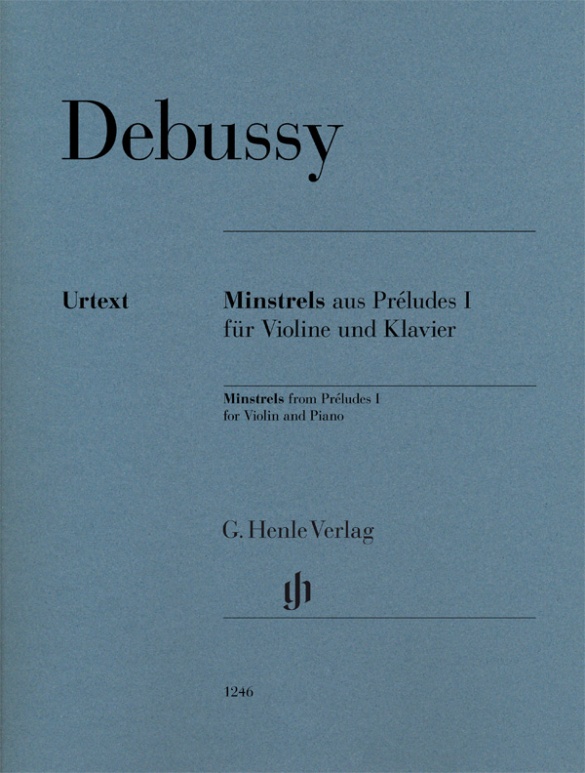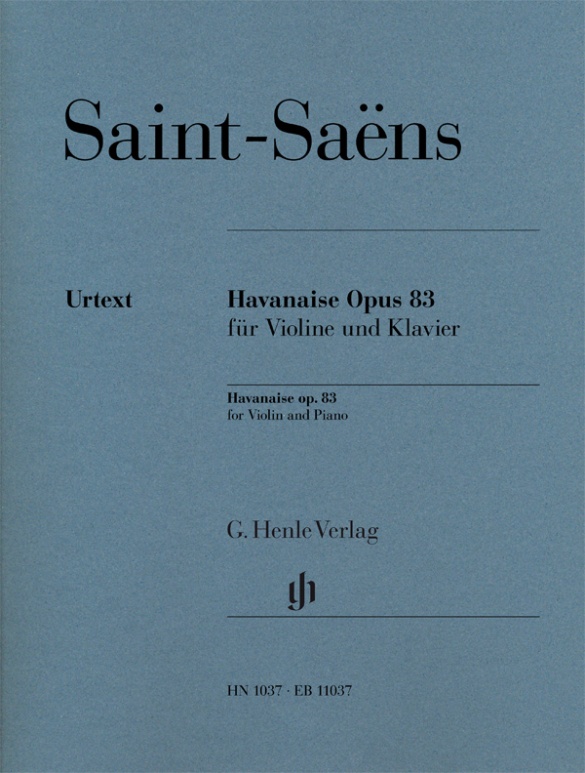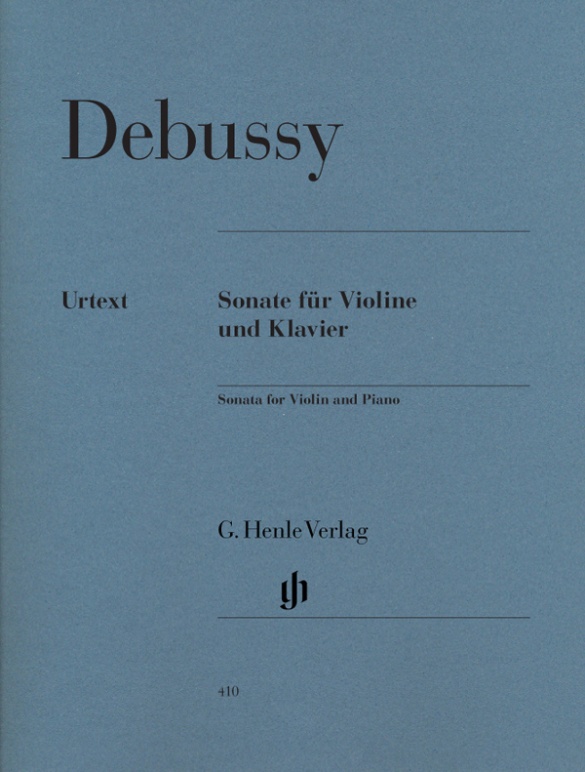

Claude Debussy
Sonate pour violon sol mineur
Très marqué par la maladie, Debussy dut, avec cette troisième sonate, mettre un terme à son cycle prévu à l’origine en six parties. Alors que la Sonate pour violoncelle et piano et celle pour flûte, alto et harpe furent composées rapidement durant cette année de guerre 1915 étonnamment prolifique, la composition, l’année suivante, de la Sonate pour violon s’avéra bien plus fastidieuse, Debussy luttant notamment avec le Finale. En avril 1917, il fut enfin en mesure de la remettre à l’éditeur Durand. Le résultat, d’un classicisme abouti et respirant la joie de vivre (comme le soulignait Debussy lui-même), ne laisse aucunement transparaître les difficultés de gestation de la sonate.
CONTENU/DÉTAILS
(Explanation)
CONCERNANT LE COMPOSITEUR
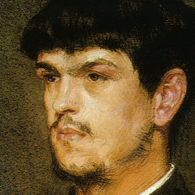
Claude Debussy
Le plus important compositeur français autour de 1900 dont la musique fondamentalement dominée par le timbre présente de profondes innovations. Son œuvre est en étroite relation avec le mouvement symboliste.
| 1862 | Né le 22 août à Saint-Germain-en-Laye. |
| 1872–84 | Études au Conservatoire de Paris. À cette époque voyages en Suisse, en Italie, à Vienne et en Russie avec la famille de Nadejda von Meck où il découvre la musique russe ainsi que la musique tzigane. |
| 1884 | Il remporte le Prix de Rome avec sa cantate «L’Enfant prodigue». Puis séjour à Rome jusqu’en 1887. |
| 1887–89 | Mélodies «Cinq Poèmes de Baudelaire». |
| 1888/89 | Séjour au Festival de Bayreuth; écrit sur Wagner. |
| 1889 | Exposition universelle de Paris où il découvre la musique de l’Extrême-Orient qui influence son style. |
| 1890 | Contact avec Mallarmé et son cercle. |
| 1891/1903 | «Fêtes galantes» série de mélodies d’après Verlaine. |
| 1891–94 | Œuvre pour orchestre «Prélude à l’après-midi d’un faune» avec des mélodies tout en arabesques. |
| 1897–99 | Nocturnes pour orchestre et voix de femmes. |
| 1901 | Début de son activité en tant que critique musical. |
| 1902 | Exécution de l’opéra « Pelléas et Mélisande» d’après le drame symboliste de Maeterlinck qui marque une rupture en dépit de la critique. |
| 1903–05 | Page orchestrale «La Mer» aux principes symphoniques et un langage musical «impressionniste». |
| 1905–07 | 1er et 2e cahiers des «Images» pour piano. |
| 1906–08 | «Children’s Corner», pièces enfantines pour piano. |
| 1909–10/11–13 | 1er et 2e livres des «Préludes» pour piano; les titres programmatiques des pièces, au caractère parfois très ésotérique, viennent à la fin. |
| 1913 | Mélodies «Trois poèmes de Stéphane Mallarmé». |
| 1915–17 | Sonates de musique de chambre recourant à la tradition française du XVIIIe s. |
| 1918 | Meurt à Paris le 25 mars. |
About the Authors
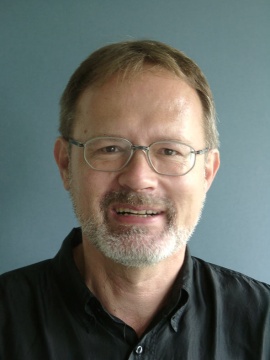
Ernst-Günter Heinemann (Editeur)
Dr. Ernst-Günter Heinemann, born in 1945 in Bad Marienberg (Westerwald), completed his schooling in Gießen and read musicology, philosophy and German in Marburg and Frankfurt/Main and also for some time Protestant church music. He did his doctorate on “Franz Liszts geistliche Musik. Zum Konflikt von Kunst und Engagement”.
From 1978–2010 Heinemann worked as an editor at G. Henle Publishers (in 1978 in Duisburg, from 1979 onwards in Munich). He edited a great many Urtext editions for the publishing house, including “Das Wohltemperierte Klavier”, Volume 1 by Bach and all of Debussy’s piano works. In addition, he wrote essays on Debussy, Grieg, Liszt, Mendelssohn and questions concerning general editing, as well as giving seminars on editorial practice for musicology students in Munich.

Klaus Schilde (Doigtés piano)
Prof. Klaus Schilde, born in 1926, spent his childhood in Dresden. There he was greatly influenced by Walter Engel, who taught him the piano (Kodaly method), composition and violin. From 1946–1948 he studied at the music conservatory in Leipzig with Hugo Steurer. After moving to the west in 1952 he studied with Walter Gieseking and Edwin Fischer, as well as with Marguerite Long, Lucette Descaves and Nadia Boulanger in Paris.
Schilde won numerous prizes. From 1947 onwards he gave concerts as a soloist and chamber musician on almost every single continent with renowned orchestras. He taught at the music conservatories in East Berlin Detmold, West Berlin, Munich, Tokyo (Geidai) and Weimar. From 1988–1991 he was President of the Staatliche Hochschule für Musik und Theater in Munich, where he also taught for decades as a professor. There are numerous radio and television broadcasts with Klaus Schilde as well as CD recordings. Schilde has contributed fingerings to almost 100 Henle Urtext editions.
Prof. Klaus Schilde passed away on 10 December, 2020.
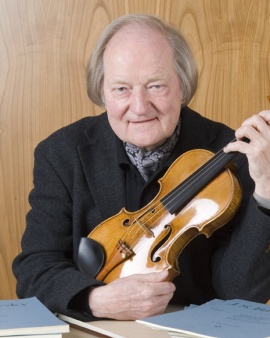
Kurt Guntner (Doigtés violon)
Prof. Kurt Guntner was born in Munich on Mozart’s 183rd birthday. He studied the violin with Ludwig Ackermann, Max Rostal and Henryk Szeryng. At the age of 18, he made his solo debut in the Kongreßsaal at the German Museum in Munich, performing Beethoven’s Violin Concerto with the Munich Philharmonic Orchestra. At the age of 22 he was appointed first concertmaster with the Bavarian State Orchestra. After 10 eventful years at the Bavarian State Opera with conductors such as Ferenc Fricsay, Joseph Keilberth and Hans Knappertsbusch, Rudolf Kempe invited him to become the first concertmaster with the Munich Philharmonic Orchestra, giving him the opportunity to perform the violin solo in many of the great violin concertos.
Of particular appeal were the BR’s invitations to perform and record great violin concertos that were seldom played, including those by Casella, Schillings, Szymanowsky. Kurt Eichhorn initiated this series– Jan Koetsier, Marek Janowski and others conducted other concertos. Kurt Guntner was also first concertmaster with the Bayreuth Festival Orchestra for many years, and played with the Munich Bach Orchestra under Karl Richter, in the Association of Soloists in The Bach Week in Ansbach and with the Münchner Bachsolisten. In 1972 he founded the internationally acclaimed ODEON-TRIO, together with the cellist Angelica May and the pianist Leonard Hokanson, touring all over the world with them for 25 years. In 1976 Guntner was called to the tenured chair of violin at Munich’s Hochschule für Musik und Theater, teaching students from around the world for 28 years.
He made numerous recordings for radio, television, record and CD. Karl Schumann described Guntner’s broad musical personality thus: “Kurt Guntner is a practical orchestral musician, soloist, chamber musician and educator in one person”.
In 1997 Kurt Guntner was awarded the order of merit (first class) of the Federal Republic of Germany.
Kurt Guntner died on 9 January 2015 in Munich.
He was closely associated with G. Henle Publishers for several decades. Since the end of the 1980s he had produced numerous Urtext editions of works for violin for the publishing house, sharing pedagogically polished bowings and fingerings for different works including violin concertos by Bach, Haydn, Mozart, Bruch and Tchaikovsky, as well as numerous other editions.
Informations sur la sécurité du produit

G. Henle Verlag
Vous trouverez ici des informations sur le fabricant du produit.G. Henle Verlag e.K.
Forstenrieder Allee 122
81476 München
Allemagne
info@henle.de
www.henle.com
recommandations
autogenerated_cross_selling
Autres éditions de ce titre


